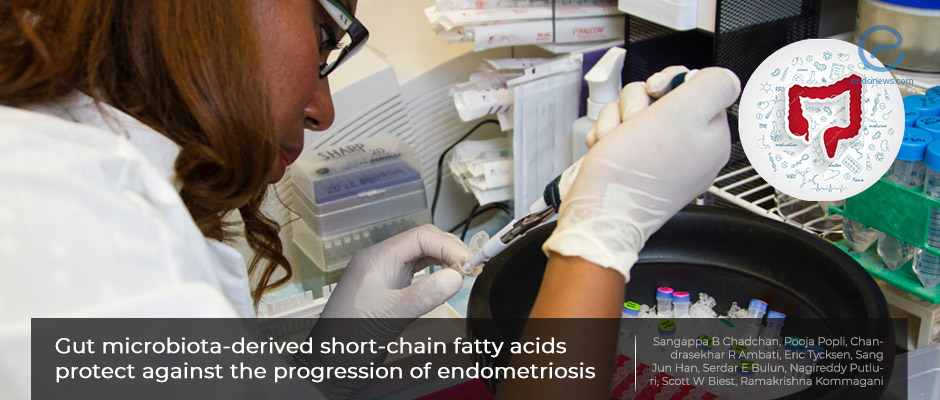Small chain fatty acids produced by gut microbiota: Could that be the missing milestone for endometriosis
Oct 27, 2021
Small chain fatty acids help endometriosis lesions shrink in mice
Key Points
Highlights:
- The dietary supplementation of small chain fatty acids (SCFA) which was missing in the feces of mice with endometriosis, helped lesion shrinking.
Importance:
- The study remarked the issue about gut microbiota and endometriosis relation opening a gate to new diagnostic and therapeutic tools.
What's done here:
- An endometriosis injection mice model was used in order to compare the effect of different SCFAs on endometriosis.
- First endometriosis is produced on microbiota depleted (MD) mice and the lesion growth was compared with the controls.
- The types and amounts of SCFAs in stools of different groups were also compared.
- After clarifying different fatty acids, the researchers gave oral gavage of missing fatty acids to endometriotic mice and measured the changes in the lesion growth.
- The prominently differentiated one, named "n-butyrate", and its effect was questioned on the pathway analysis.
Key Results:
- The authors found that changes in gut microbiota cause endometriotic lesion growth:
- Stool from mice with endometriosis comprised less of SCFA and specifically n-butyrate than control mice.
- Oral gavage with n-butyrate reduced growth of endometriotic lesions in the mouse model.
- Pathway studies revealed that n-butyrate inhibited human endometriotic cell survival and lesion progression by affecting G-protein–coupled receptors, histone deacetylases, and a GTPase activating protein.
Limitations:
- The results should be evaluated for human endometriosis lesions.
Lay Summary
Endometriosis is a worldwide problem but still, the underlying mechanism and optimal treatment options are controversial.
In the study conducted by Sangappa B Chadchan et al., the researchers investigated the possible relationship between gut microbiota and endometriosis. A study published in the journal "Life Science Alliance".
The researchers used an endometriosis injection model of mice in order to compare the effect of different small chain fatty acids on endometriotic lesions. First, they produced endometriotic lesions on microbiota-depleted mice and measured the lesion growth on the control and microbiota-depleted group. Then they measured the types and amounts of small chain fatty acids in the stools of the two groups.
After differentiating and clarifying the fatty acids, the researchers gave oral gavage of missing fatty acids to endometriotic mice in order to measure the alterations in the lesion growth.
Oral gavage with n-butyrate reduced the growth of endometriotic lesions in the mouse model. Pathway studies revealed that n-butyrate inhibited human endometriotic cell survival and lesion progression by affecting G-protein–coupled receptors, histone deacetylases, and a GTPase activating protein (RAP1GAP).
The authors concluded as the study highlights the importance of gut microbiota and endometriosis relation opening a gate to new diagnostic tools from stool or even oral probiotic replacement therapies for endometriosis.
Research Source: https://pubmed.ncbi.nlm.nih.gov/34593556/
gut microbiota endometriosis

